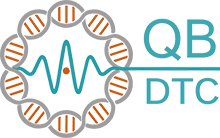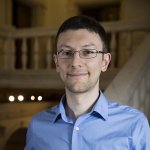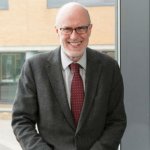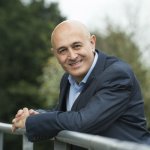

About us
The University of Surrey’s new Leverhulme Quantum Biology Doctoral Training Centre (QB-DTC) is the world’s first centre dedicated to training interdisciplinary scientists in the field of quantum biology.
What is quantum biology?
Recent research has established that quantum mechanics plays a key role in biological processes such as photosynthesis, respiration, enzyme action, olfaction, bird navigation, mutation and maybe even the way we think. Quantum biology is the study of these quantum underpinnings of biology, and its advance requires a new generation of scientists who can work across discipline boundaries.
Resources and facilities
The Centre has access to resources at the University of Surrey’s Innovation for Health facilities and Advanced Technology Institute (ATI),
In partnership with the National Physical Laboratory and the University of Strathclyde, we support PhD students in their research into the realm of quantum mechanics and chemistry in biological processes.
Centre directors (2024-present)
The Leverhulme QB-DTC is led by Youngchan Kim (Director), Lecturer in Quantum Biology, and Marci Sacchi (Co-Director), Associate Professor in Physical and Computational Chemistry. Both academics are at the forefront of this emerging field. Youngchan serves as the inaugural Editor-in-Chief for the peer-reviewed open-access journal, Computational and Structural Biotechnology Journal: Quantum Biology & Biophotonics, published by Elsevier.

Director
Dr Youngchan Kim
Lecturer in Quantum Biology, Director of the Quantum Biology Doctoral Training Centre (QB-DTC)
Biography
Youngchan joined the University in 2020. His group uses engineering biology and optical spectroscopy techniques to study biological systems that give rise to quantum phenomena under physiological conditions. His group is also interested in developing optical sensing and imaging techniques to improve our understanding of the pathogenesis and treatment of human diseases.
He obtained a BSc in Physics from Chung-Ang University in South Korea in 2006 and obtained a PhD in terahertz spectroscopy from Korea Advanced Institute of Science and Technology (KAIST) in 2011. Prior to joining the University of Surrey, he completed three postdoctoral training fellowships at KAIST (2011-2013), Imperial College London (2013-2015), and the US National Institutes of Health (2015-2020).

Co-Director
Dr Marco Sacchi
Associate Professor of Physical and Computational Chemistry, Theme Leader in Sustainable Energy and Materials Research, Co-Director of the Quantum Biology Centre
Biography
I obtained a PhD in Chemistry at the École polytechnique fédérale de Lausanne (EPFL), in Switzerland. At the end of my PhD, I won a Swiss National Science Foundation fellowship and joined the Surface Science Group (SSRG) at the University of Cambridge, led by Prof Sir David King.
In 2014, I was awarded a Royal Society University Research Fellowship, and I joined the University of Surrey. My current research interests include Quantum Biology, Surface Dynamics and 2D nanomaterials. I am an elected member of the Council of the Faraday Division of the Royal Society of Chemistry, and an Editorial Board Member of Discover Molecules.
In my research, I employ first-principles computational methods to investigate quantum effects in biological molecules (including DNA), dynamics on surfaces and catalysis on 2D materials. I regularly collaborate with international academic institutions and companies. If you are interested in collaborating with us or funding a PhD studentship in our group, please get in touch. I am also open to consultancy projects in the areas of science policy, sustainability and computational chemistry.
Former centre directors (2018-2024)
The Leverhulme QB-DTC was led by Johnjoe McFadden (Director), Professor of Molecular Genetics, and Jim Al-Khalili (Co-Director), Professor of Physics from 2018 to 2024. Both academics are at the forefront of this emerging field and co-wrote the first popular science book on the subject, Life on the Edge: The Coming of Age of Quantum Biology, which was published in 2014.

Professor Johnjoe McFadden
Professor of Molecular Genetics, Associate Dean (International)
See profile
Professor Jim Al-Khalili
Distinguished Professor Emeritus in Physics
Biography
Jim Al-Khalili CBE FRS is a theoretical physicist who is currently Distinguished Professor Emeritus.
He received his PhD in theoretical nuclear physics from Surrey in 1989 and then spent two years as an SERC Postdoctoral Research Fellow at University College London before returning to Surrey in 1991. He was appointed lecturer in 1992 and, in 1994, was awarded an EPSRC Advanced Research Fellowship for five years during which time he established himself as a world leading authority on nuclear reaction theory of light exotic nuclei, publishing widely. Following this he reverted to a full-time lectureship in the Department at Surrey. He was elected Fellow of the Institute of Physics in 2000 and promoted to Senior Lecturer in 2001. He was promoted to professor of physics in 2005. He has published over a hundred papers in nuclear physics, quantum mechanics and quantum biology and has supervised 22 PhD students.
Jim is also a prominent author and broadcaster. He has written 14 books on popular science and the history of science, between them translated into twenty-six languages. His book, The World According to Physics, was shortlisted for the Royal Society Book Prize. His latest, published in 2022 is The Joy of Science. He is a regular presenter of TV science documentaries, such as the Bafta nominated Chemistry: a volatile history, and has hosted the long-running weekly BBC Radio 4 programme, The Life Scientific, since 2011.
Despite his profile as a public scientist, Jim has continued to teach undergraduate physics students in an unbroken run of 32 years since 1992. He is still very research active, with five current PhD students working on different aspects of quantum mechanics and open quantum systems and is co-director of the Leverhulme Doctoral Training Centre for Quantum Biology and leads the Quantum Foundations and Technologies Research Group in the School of Mathematics and Physics. He is also Principle Investigator on a research project on the Quantum Arrow of Time.
Jim is a past president of the British Science Association and a recipient of the Royal Society's Michael Faraday medal and the Wilkins-Bernal-Medawar Medal, the Institute of Physics Kelvin Medal and the Stephen Hawking Medal for Science Communication. He received an OBE in 2007 and a CBE in 2022 for ‘services to science’.
Quantum Biology - an educational science video from the University of Surrey
Quantum mechanics describes what goes on in the microscopic realm of atoms. Over time, our mathematical description of these has helped us understand the Universe better. However, we are slowly discovering that certain processes within living cells show signs of quantum mechanics. And this new field of science is called quantum biology.
